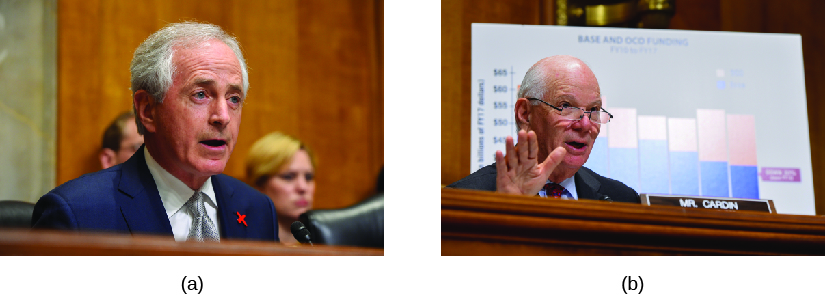| << Chapter < Page | Chapter >> Page > |
Congress is a bicameral legislative institution with 100 senators serving in the Senate and 435 representatives serving in the House. How interested in foreign policy are typical House and Senate members?
While key White House, executive, and legislative leaders monitor and regularly weigh in on foreign policy matters, the fact is that individual representatives and senators do so much less often. Unless there is a foreign policy crisis, legislators in Congress tend to focus on domestic matters, mainly because there is not much to be gained with their constituents by pursuing foreign policy matters.
However, some House and Senate members do wade into foreign policy matters. First, congressional party leaders in the majority and minority parties speak on behalf of their institution and their party on all types of issues, including foreign policy. Some House and Senate members ask to serve on the foreign policy committees, such as the Senate Committee on Foreign Relations , the House Foreign Affairs Committee , and the two defense committees ( [link] ). These members might have military bases within their districts or states and hence have a constituency reason for being interested in foreign policy. Legislators might also simply have a personal interest in foreign policy matters that drives their engagement in the issue. Finally, they may have ambitions to move into an executive branch position that deals with foreign policy matters, such as secretary of state or defense, CIA director, or even president.

Most House and Senate members do not engage in foreign policy because there is no electoral benefit to doing so. Thus, when citizens become involved, House members and senators will take notice. Research by John Kingdon on roll-call voting and by Richard Hall on committee participation found that when constituents are activated, their interest becomes salient to a legislator and he or she will respond.
One way you can become active in the foreign policy realm is by writing a letter or e-mail to your House member and/or your two U.S. senators about what you believe the U.S. foreign policy approach in a particular area ought to be. Perhaps you want the United States to work with other countries to protect dolphins from being accidentally trapped in tuna nets. You can also state your position in a letter to the editor of your local newspaper, or post an opinion on the newspaper’s website where a related article or op-ed piece appears. You can share links to news coverage on Facebook or Twitter and consider joining a foreign policy interest group such as Greenpeace.
When you engaged in foreign policy discussion as suggested above, what type of response did you receive?

Notification Switch
Would you like to follow the 'American government' conversation and receive update notifications?